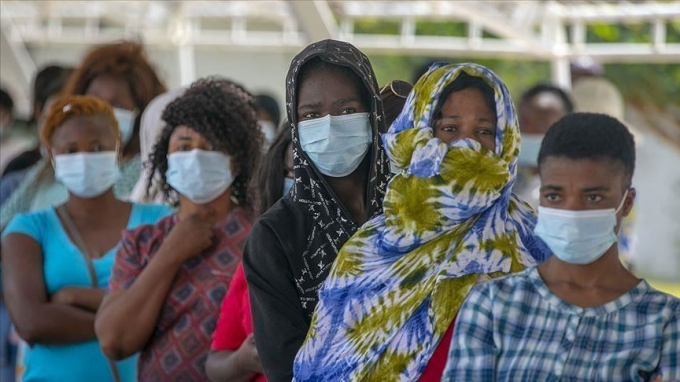May 28, 2025 | 18:01 GMT +7
May 28, 2025 | 18:01 GMT +7
Hotline: 0913.378.918
May 28, 2025 | 18:01 GMT +7
Hotline: 0913.378.918

According to a joint report by the International Organization for Migration and the World Food Programme.
The report titled, Life Amidst a Pandemic: Hunger, Migration and Displacement in the East and Horn of Africa, said Sudan, Ethiopia and South Sudan were among the 10 countries with the worst food crises globally in 2020, with 9.6 million, 8.6 million and 6.5 million people respectively acutely food insecure.
Burundi on the other hand, has one of the highest levels of chronic malnutrition or stunting of children globally.
According to the study, Ethiopia's Tigray region has become a new hunger hotspot since late last year with more than 4 million people facing severe food insecurity due to conflict.
The displaced populations in the East and Horn of Africa have particularly been hit hard by the impacts of the COVID-19 pandemic.
The report found that 8.9 million internally displaced persons, 4.7 million refugees and asylum-seekers, as well as hundreds of thousands of migrants in the region are suffering some of the worst impacts of the pandemic.
The level of vulnerability of displaced populations increased due to reduced funding for humanitarian operations, leading to food ration cuts for refugee populations in Djibouti, Ethiopia, Kenya, Rwanda, South Sudan and Uganda, negatively affecting their food security, nutrition and protection situation.
Somalia, Ethiopia and South Sudan accounted for 96 percent of the overall displaced population, standing at 2.4 million, 2 million and 1.6 million respectively.
Uganda and Sudan hosted more than half of the refugees and asylum-seekers with 1.4 million and 1.1 million respectively.
After having remained relatively stable for nearly a year, displacement increased at the end of 2020, predominantly triggered by natural disasters.
The report said an estimated 3.1 million new disaster-related displacements driven by heavy flooding, landslides and renewed drought were recorded in the region last year, compared to over 2.3 million new conflict-related displacements.
Due to conflicts and climate related shocks, over 38 million people are in need of humanitarian assistance and the report projects a 28 percent increase by the end of the year.
In addition to the region lacking universal healthcare and having few social safety nets, over 44 percent of the population is estimated to live below $1.90 per day.
While efforts are ongoing to contain COVID-19, the report said presence of genomic variants of coronavirus already confirmed in most countries in the region, has further challenged the capacity to control the spread of the disease.
The study researchers said the pandemic has disrupted, and will continue to disrupt the health, social, economic and mobility conditions of most people in the region.
"Pre-existing, new and recurring challenges will continue to destabilize the region and strain the capacity of affected populations to cope with shocks," the report said.
"These challenges will have implications on migration and hunger dynamics, with broader consequences for the achievement of the 2030 Agenda for Sustainable Development."
Through the study, the International Organization for Migration and the WFP are advocating for priority actions on humanitarian assistance, inclusivity and access to critical services, labor mobility, immigration, data and evidence-building and gender-sensitive responses.
"COVID-19 has only added to the challenges faced by these already vulnerable populations. We must come together so those in need are not forgotten and receive lifesaving humanitarian assistance to meet their food, nutrition and other vital needs," said Michael Dunford, the WFP regional director for Eastern Africa.
Chinadaily

(VAN) Vikas Rambal has quietly built a $5 billion business empire in manufacturing, property and solar, and catapulted onto the Rich List.

(VAN) Available cropland now at less than five percent, according to latest geospatial assessment from FAO and UNOSAT.

(VAN) Alt Carbon has raised $12 million in a seed round as it plans to scale its carbon dioxide removal work in the South Asian nation.

(VAN) Attempts to bring down the price of the Japanese staple have had little effect amid a cost-of-living crisis.

(VAN) Fourth most important food crop in peril as Latin America and Caribbean suffer from slow-onset climate disaster.

(VAN) Shifting market dynamics and the noise around new legislation has propelled Trouw Nutrition’s research around early life nutrition in poultry. Today, it continues to be a key area of research.

(VAN) India is concerned about its food security and the livelihoods of its farmers if more US food imports are allowed.